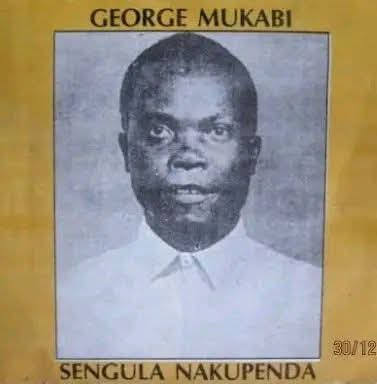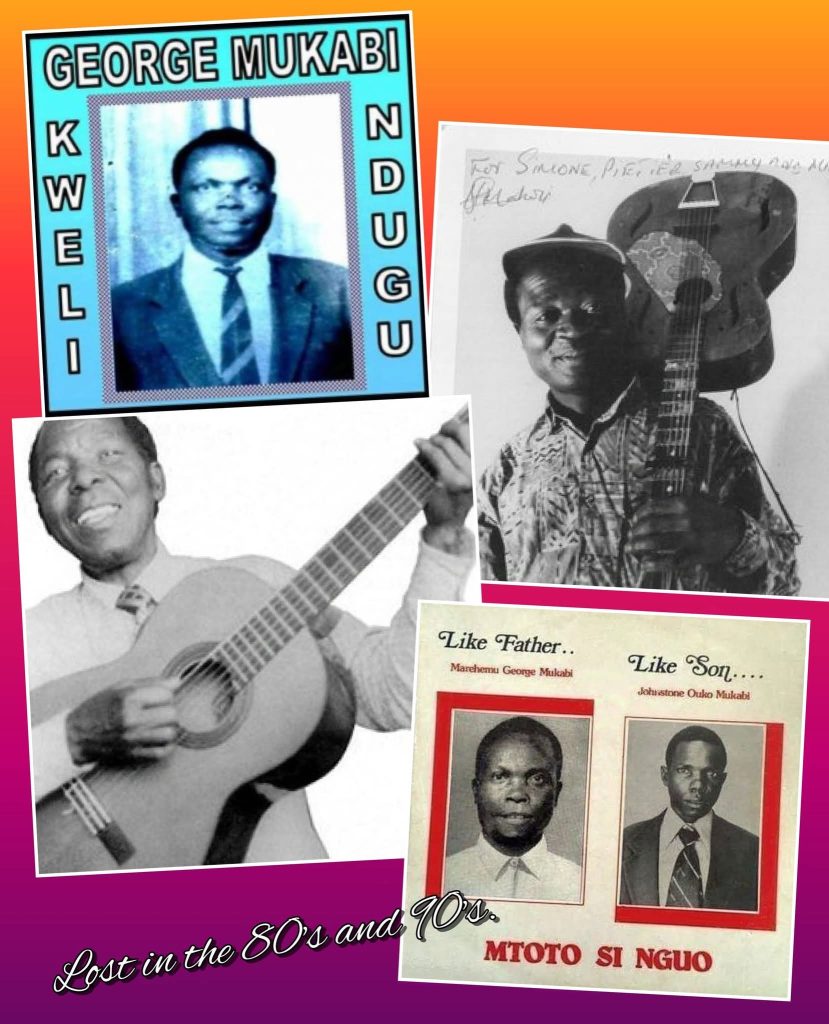TRAGIC END OF A MUSIC PIONEER: THE UNTOLD STORY OF GEORGE MUKABI

By GMK team.
George Mukabi, one of Kenya’s earliest and most influential recording artists, remains a towering figure in the country’s musical heritage. His melodic fingerpicking guitar style and poignant lyrics not only won him a dedicated following among urban Africans of the 1950s and early 60s but also inspired generations of musicians, including the celebrated John Mwale.

Mukabi’s music — notably the timeless “Singula Nakupenda” and “Mtoto si Nguo” (later performed by his son) — continues to grace Kenyan airwaves decades after his death, a testament to his artistic genius. Yet, behind the melodies lies a tragic story that abruptly cut short a promising career.
In 1963, at the peak of his musical prowess, Mukabi’s life ended in brutal fashion — a tragic culmination of domestic strife, cultural tension, and community retribution.
The Jealousy That Sparked a Tragedy
Mukabi had just returned from Nairobi where he had travelled on music-related business, bringing home proceeds from his work and, as always, his beloved guitar — a prized possession reportedly gifted to him by a European admirer of his talent. After dropping the instrument at his younger wife’s house, he retired to his first wife’s home nearby to rest.
Consumed by jealousy and suspecting that Mukabi intended to give his earnings to the first wife, the second wife vented her frustration by smashing the treasured guitar. The noise drew Mukabi back in a fury. On discovering what had happened, his second wife fled to her parental home — but Mukabi gave chase.
To him, the destruction of the guitar was unforgivable. It was not just a tool of his trade; it was the core of his identity.
A Line Crossed
What happened next was a violation of deep cultural norms. In Luhya and Luo customary law, a man entering his in-laws’ private quarters — especially the bedroom — is seen as a serious taboo. But Mukabi, blinded by rage, stormed into his in-laws’ compound, brushed past his elderly father-in-law who was resting outside, and entered the bedroom, where he found his wife hiding under the bed.
He dragged her out and began to assault her.
Her elderly father, powerless to intervene physically, shouted for help. Nearby villagers, still in their farms, responded swiftly — armed with pangas, jembes, and rungus. They descended upon Mukabi with ferocity.
The Final Escape — and End
Despite suffering deep wounds, Mukabi managed to flee and crossed River Yala in a desperate bid to save himself. But his injuries were too severe. He collapsed a short distance from the riverbank.
The villagers, still in pursuit, caught up with him. In a gruesome act of mob justice, they killed him and mutilated his body. His remains were later loaded onto a mkokoteni (cart) and taken to Kakamega Hospital mortuary.
A Legacy Overshadowed by Violence
George Mukabi’s death marked a dark chapter not only in Kenyan music history but also in the broader conversation around gender, domestic violence, and mob justice. His immense contribution to the development of early Kenyan music is undeniable. Yet, his end — driven by passion, jealousy, and cultural transgression — serves as a sobering reminder of how personal turmoil can eclipse public triumph.
His music lives on, but so does the painful memory of a star extinguished too soon.
George Mukabi’s work continues to inspire scholars, musicians, and cultural historians. His story is both a celebration of musical brilliance and a cautionary tale of how unchecked emotions and societal norms can collide with devastating consequences.






